
The Enchanting Zillertal Alps
Nestled in the heart of Austria, the Zillertal Alps offer a spectacular mix of natural beauty and outdoor adventures. This breathtaking mountain range is a paradise for hikers, skiers, and nature lovers alike. The lush valleys, snow-capped peaks, and crystal-clear lakes create a stunning backdrop for any visit. During summer, the Zillertal Alps transform into a hiker's haven with over 1,400 kilometers of marked trails. You can explore vibrant meadows, dense forests, and serene alpine pastures. Don't miss the chance to visit the Zillertal High Road, which provides panoramic views of the surrounding landscape. Winter brings a different kind of magic to the Zillertal Alps, as the area becomes a premier skiing destination. With four large ski areas, including the famous Hintertux Glacier, it offers slopes for all skill levels. The region's well-maintained ski resorts and charming alpine villages make it a favorite among winter sports enthusiasts. Beyond outdoor activities, the Zillertal Alps are rich in cultural experiences. You can visit traditional Tyrolean villages, enjoy local cuisine, and immerse yourself in the warm hospitality of the region. Whether you're seeking adventure or relaxation, the Zillertal Alps promise an unforgettable experience.
Local tips in Zillertal Alps
- Visit in late spring or early autumn for the best hiking conditions and fewer crowds.
- In winter, book ski passes and accommodations in advance to secure the best options.
- Rent a car for easier access to remote trails and scenic spots.
- Try the local Tyrolean cuisine, especially the hearty dishes like Kasspatzln and Tiroler Gröstl.
- Don't forget to pack layers, as the weather can change quickly in the mountains.
The Enchanting Zillertal Alps
Nestled in the heart of Austria, the Zillertal Alps offer a spectacular mix of natural beauty and outdoor adventures. This breathtaking mountain range is a paradise for hikers, skiers, and nature lovers alike. The lush valleys, snow-capped peaks, and crystal-clear lakes create a stunning backdrop for any visit. During summer, the Zillertal Alps transform into a hiker's haven with over 1,400 kilometers of marked trails. You can explore vibrant meadows, dense forests, and serene alpine pastures. Don't miss the chance to visit the Zillertal High Road, which provides panoramic views of the surrounding landscape. Winter brings a different kind of magic to the Zillertal Alps, as the area becomes a premier skiing destination. With four large ski areas, including the famous Hintertux Glacier, it offers slopes for all skill levels. The region's well-maintained ski resorts and charming alpine villages make it a favorite among winter sports enthusiasts. Beyond outdoor activities, the Zillertal Alps are rich in cultural experiences. You can visit traditional Tyrolean villages, enjoy local cuisine, and immerse yourself in the warm hospitality of the region. Whether you're seeking adventure or relaxation, the Zillertal Alps promise an unforgettable experience.
When is the best time to go to Zillertal Alps?
Iconic landmarks you can’t miss
Zillertaler Höhenstraße
Experience breathtaking panoramic views of the Zillertal Alps along Austria's most scenic alpine road. A must-see for nature lovers!
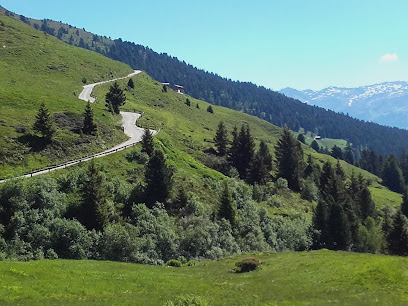
Naturparkhaus
Discover the Zillertal Alps' natural wonders at the Naturparkhaus Ginzling, your gateway to hiking, education, and alpine exploration.
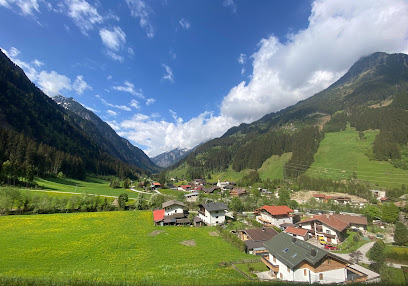
Abenteuer Goldbergbau
Unearth 350 years of Zillertal's gold mining history: explore mine tunnels, pan for gold, and savor local cheese in a stunning alpine setting.
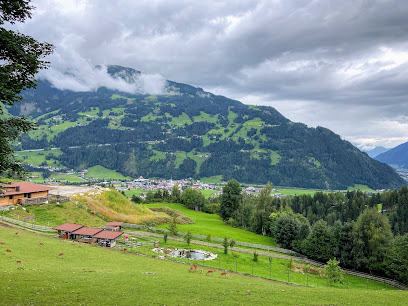
Steinbock.Welten
Explore the world of the Alpine ibex at Steinbock.Welten in Zillergrund Valley, and discover the natural history of the Zillertal Alps.
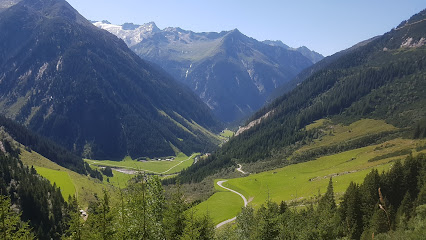
Unmissable attractions to see
Krimml Waterfalls
Experience the breathtaking Krimml Waterfalls, Austria's highest, with a scenic hike through the stunning Hohe Tauern National Park.
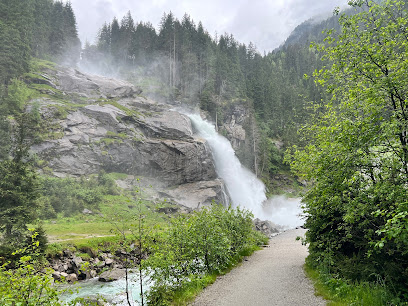
Zillertal Arena
Experience Austria's largest interconnected ski area! Skiing, snowboarding, hiking, and alpine adventures in the heart of the Zillertal Valley.
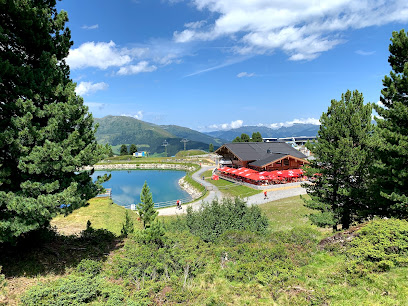
Penkenbahn - Mayrhofner Bergbahnen
Experience the thrill of the Tyrolean Alps! Ascend via the Penkenbahn for skiing, hiking, and breathtaking panoramic views of the Zillertal Valley.
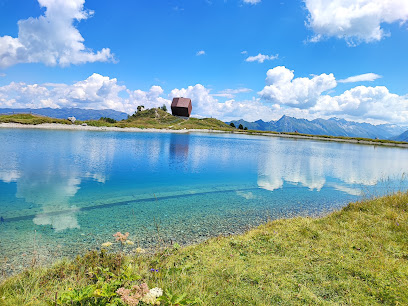
Tirolland / Haus Steht Kopf + Dinoland
Experience an upside-down world, roam with dinosaurs, and explore fascinating exhibits at Tirolland in Terfens, Austria. A day of fun for everyone!
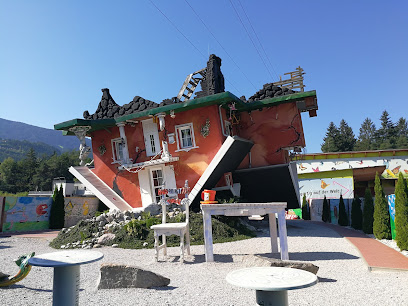
Brixner Dom
Discover the Baroque splendor of Brixen Cathedral, a historical and artistic treasure in the heart of the South Tyrol.
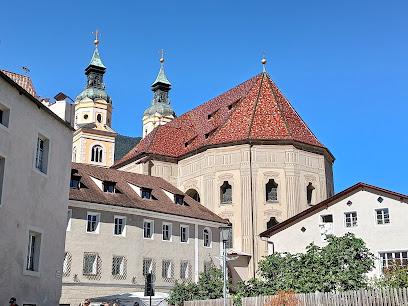
Ahornbahn
Ascend to the Ahorn Leisure Mountain via Austria's largest gondola for panoramic views, hiking, and family fun in the Zillertal Alps.
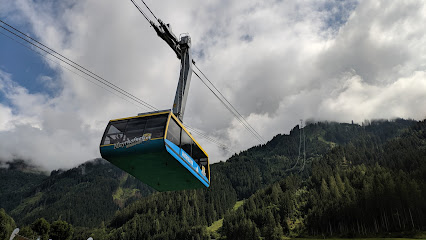
Tratzberg Castle
Discover 500 years of history at Tratzberg Castle, a stunning Renaissance jewel in the Austrian Tyrol, featuring original interiors and virtual reality tours.
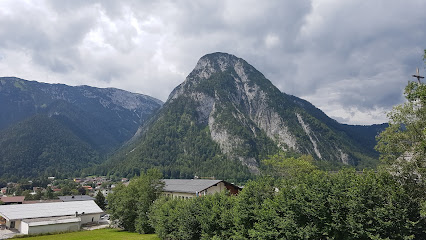
Schlegeis Stausee
Discover the breathtaking beauty of Schlegeis Stausee in the Zillertal Alps: a blend of nature, engineering, and outdoor adventure.
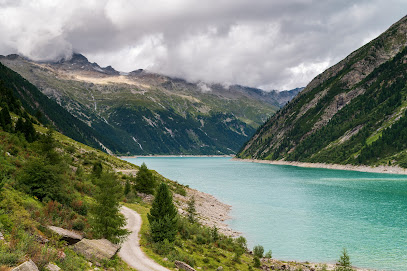
Murmelland-Zillertal
Discover marmots, hiking trails & family fun at Murmelland-Zillertal, an alpine paradise with stunning views along the Zillertaler Höhenstraße.
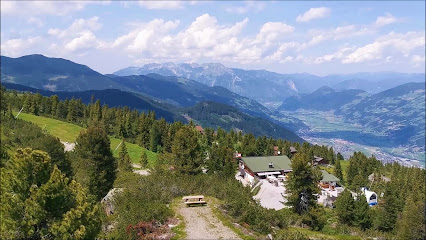
Freizeitpark Zell
Year-round fun for the whole family in Zell am Ziller! Swimming, skating, sports, and adventure in the heart of the Zillertal.
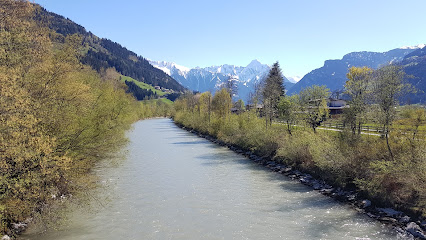
Chiostro di Bressanone
Explore a historic cloister in Bressanone with stunning frescoes, a peaceful garden, and a journey through centuries of art and religion.
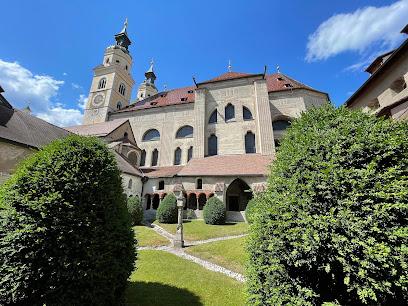
Teufelsbrücke Finkenberg
Discover the legendary Teufelsbrücke in Finkenberg: a historic bridge offering stunning views and a taste of Tyrolean folklore.
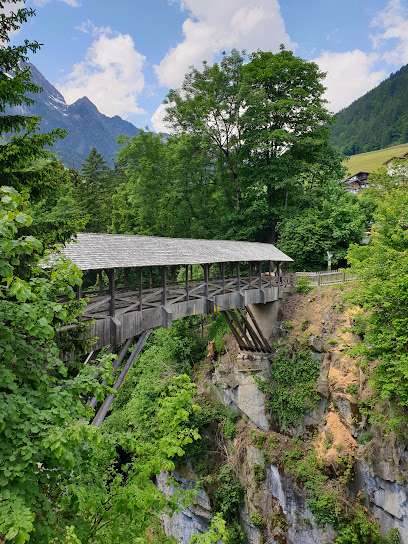
Schlegeis Alpenstraße - VERBUND Tourismus GmbH
Experience the breathtaking beauty of the Austrian Alps on this scenic toll road leading to the stunning Schlegeis Reservoir.
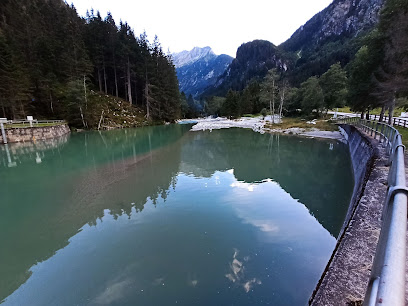
Ahornsee
Escape to the serene beauty of Ahornsee in Mayrhofen, Austria, where crystal-clear waters meet majestic mountains for an unforgettable alpine experience.
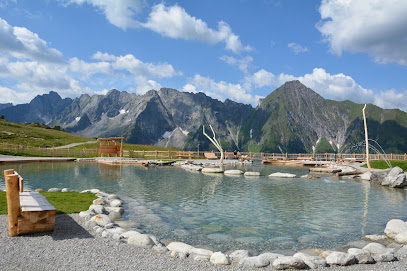
Talbach Wasserfall
Discover the refreshing beauty of Talbach Waterfall in Zillertal: scenic hikes, cascading waters, and thrilling via ferrata adventures await!
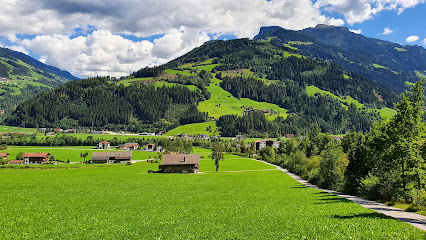
Essential places to dine
Kristallhütte Zillertal - Restaurant, Bar, Hotel
Discover culinary excellence at Kristallhütte Zillertal - where stunning alpine views meet diverse dining options including vegetarian delights.
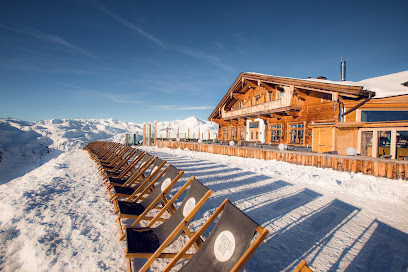
Goldkind
Discover authentic Austrian cuisine at Goldkind in Mayrhofen, where fresh local ingredients meet warm hospitality amidst stunning alpine views.
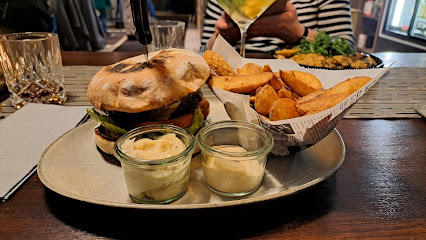
Almgasthaus Zellberg Stüberl
Experience authentic Austrian cuisine with breathtaking mountain views at Almgasthaus Zellberg Stüberl in Zillertal Valley.
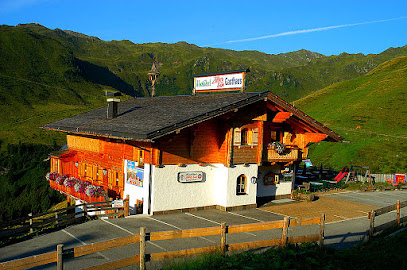
Berg&Tal Restaurant
Experience authentic Austrian flavors at Berg&Tal Restaurant in Mayrhofen – where local ingredients meet culinary artistry.
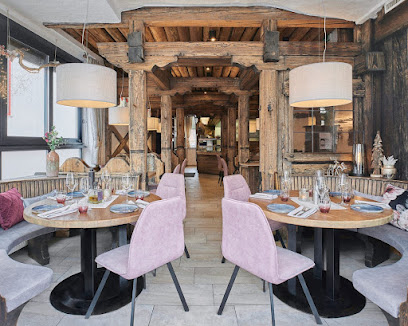
Papa Joe Ristorante
Experience authentic Italian cuisine at Papa Joe Ristorante in Zell am Ziller – where every meal feels like a celebration!
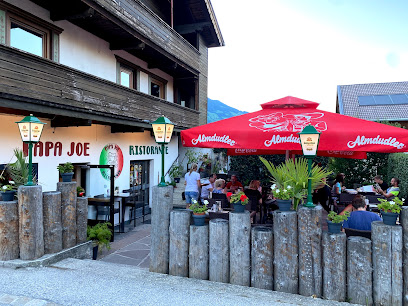
La Pasta | Restaurant | Hotel
Experience authentic Italian cuisine at La Pasta in Stumm – where every meal feels like a journey to Italy amidst stunning Austrian landscapes.

Restaurant La Vita
Experience the best of European cuisine at Restaurant La Vita in Mayrhofen, where delicious barbecue meets Tyrolean hospitality.
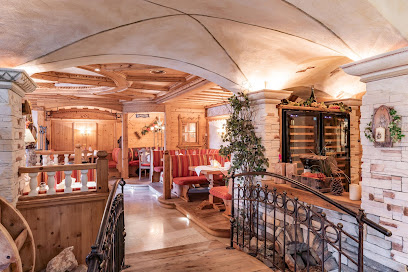
Restaurant Zirbenstube
Experience authentic Tyrolean cuisine at Restaurant Zirbenstube in Fügenberg – where local flavors meet stunning alpine views.
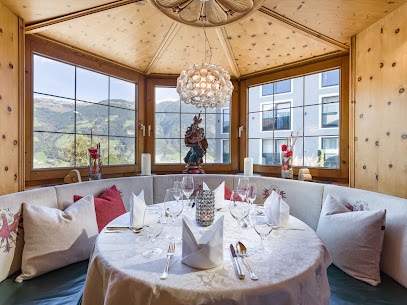
Restaurant GuatzEssen
Experience exceptional vegetarian fine dining at Restaurant GuatzEssen in Stumm – where creativity meets sustainability.
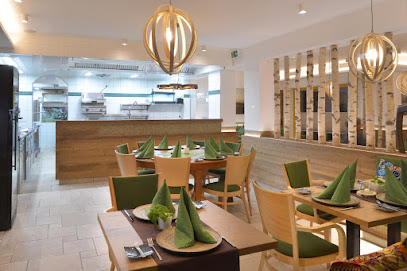
Restaurant Schönblick
Experience traditional Austrian cuisine with stunning mountain views at Restaurant Schönblick in Ried im Zillertal.
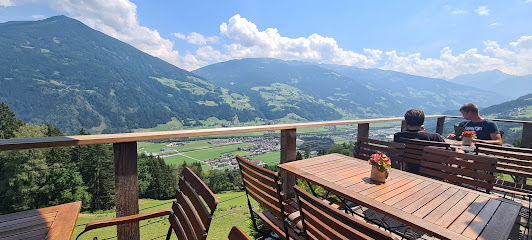
Restaurant Bräu
Experience authentic Austrian flavors at Restaurant Bräu in Zell am Ziller - where tradition meets taste in a cozy setting.
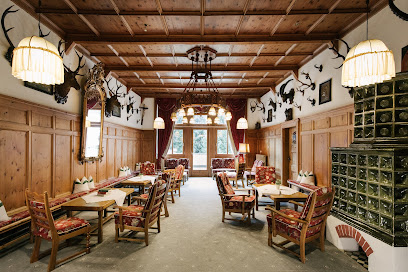
Restaurant DieMarie
Experience authentic Austrian cuisine amidst stunning alpine scenery at Restaurant DieMarie in Zell am Ziller.
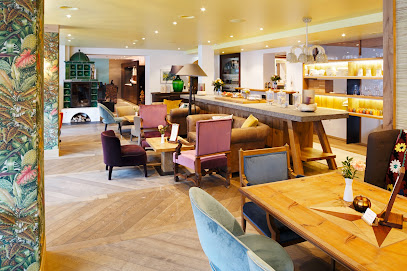
Heleni - Fein Speisen
Experience culinary excellence at Heleni - Fein Speisen in Zell am Ziller, where traditional Austrian flavors meet modern fine dining.
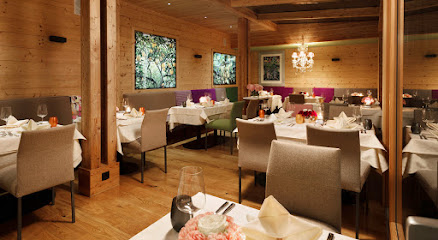
Restaurant Platzlhof
Experience authentic Austrian cuisine at Restaurant Platzlhof in Ried im Zillertal, surrounded by breathtaking alpine views.
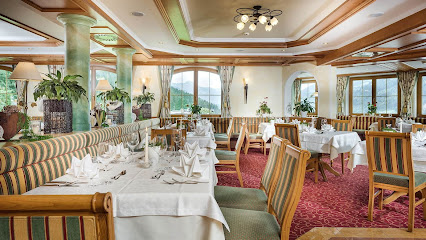
Markets, malls and hidden boutiques
Zillertaler Heumilch Sennerei
Experience the authentic flavors of Zillertal at the Zillertaler Heumilch Sennerei, a treasure trove of local dairy delights and organic products.
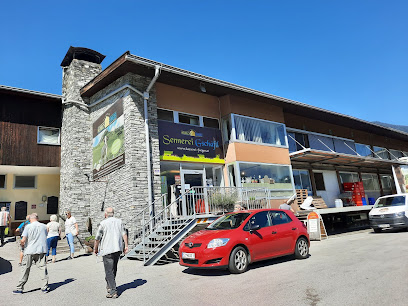
Souvenir Linda
Discover authentic Tyrolean souvenirs and gifts at Souvenir Linda, where every item tells a story of Austrian culture and craftsmanship.
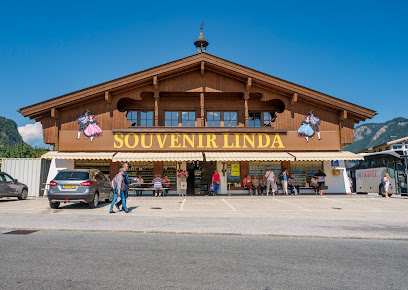
ZILLERSPORT Unterlercher
Discover the ultimate winter sports experience at ZILLERSPORT Unterlercher, your go-to destination for ski and snowboard rentals in Fügen.
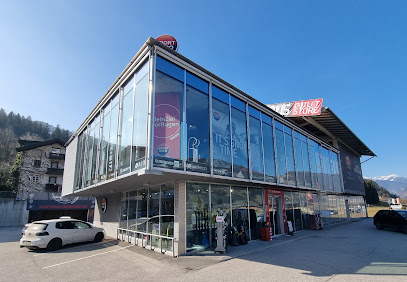
SPAR
Discover SPAR in Fügen: Your go-to supermarket for local delights and essentials during your Austrian adventure.
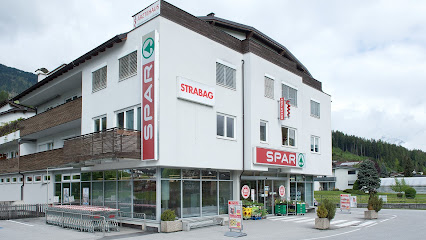
BILLA
Explore BILLA Supermarket in Zell am Ziller for a delightful array of local and international products, perfect for all your travel needs.
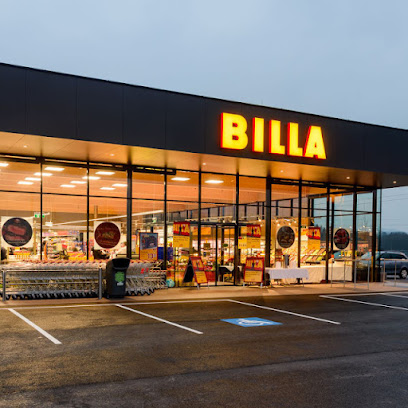
Sport Stock GmbH
Discover unparalleled biking and skiing experiences at Sport Stock GmbH in Kaltenbach, your ultimate outdoor adventure hub in the Alps.
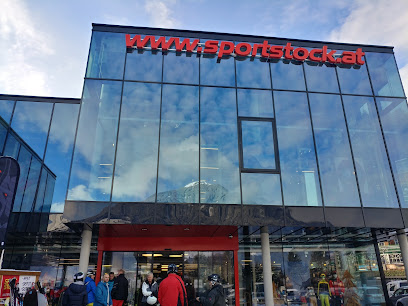
Spielzeugparadies Zillertal
Explore Spielzeugparadies Zillertal, a magical toy store and amusement center in Kaltenbach, where imagination and fun come together for all ages.
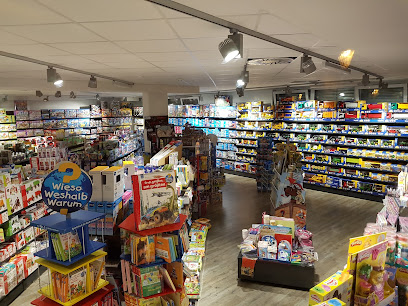
INTERSPORT Strasser
Explore the Austrian Alps with top-notch rentals and gear at INTERSPORT Strasser, your adventure partner in Rohrberg.

Bee House
Discover the enchanting world of beekeeping at the Bee House in Zillertal Valley, where honey comes to life through tastings and guided tours.
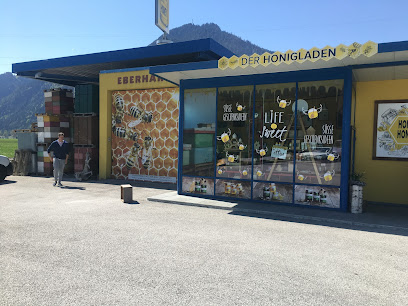
MPREIS
Discover the best of Ramsau im Zillertal at MPREIS, your go-to supermarket for local groceries, floristry, and essentials.
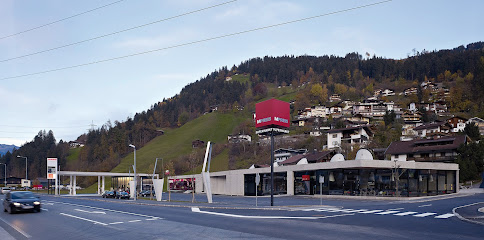
Sport Rainer OG - Sportgeschäft - Ski & Snowboard Verleih - Rent
Discover top-notch ski and snowboard gear at Sport Rainer OG in Uderns, where adventure meets quality and expert advice.
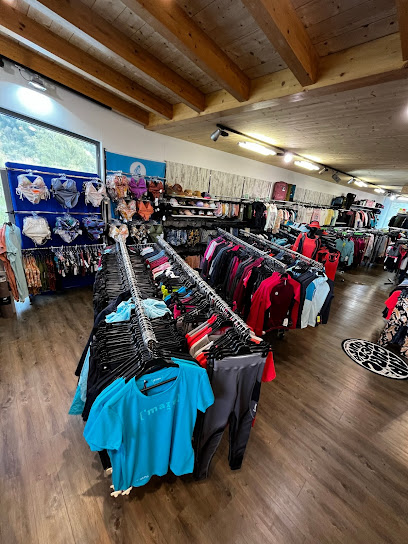
Zillertaler Speckstube
Savor the authentic flavors of Tyrol at Zillertaler Speckstube, a charming grocery store in Fügen offering local delicacies and artisanal products.
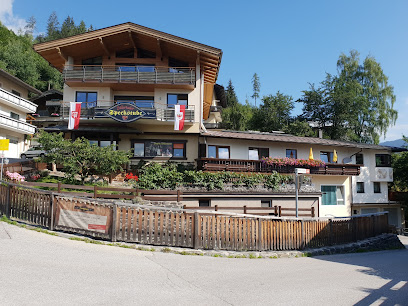
Zillertaler Doggln
Explore Zillertaler Doggln for a unique selection of footwear that combines local craftsmanship with modern style in the heart of Stumm.
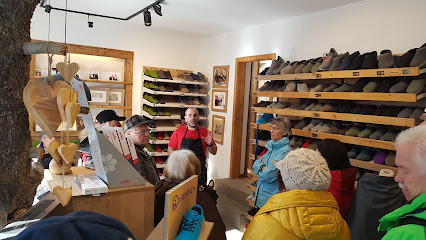
Rebellen-Alm
Experience authentic Austrian flavors at Rebellen-Alm, the charming grocery store in Zell am Ziller with fresh local produce and artisan delights.
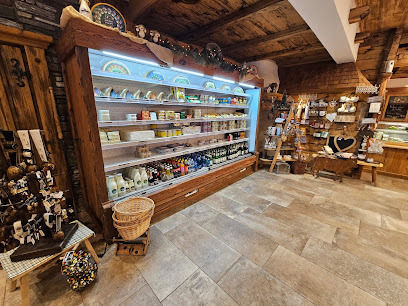
rent and go Sportshop
Explore the great outdoors with top-notch gear and ski rentals at Rent and Go Sportshop, the premier sporting goods destination in Uderns.
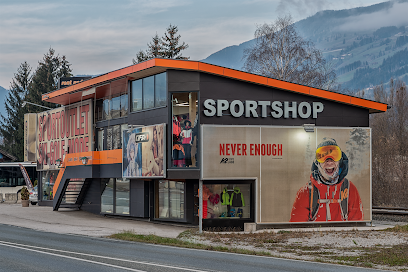
Essential bars & hidden hideouts
Brück'n Stadl
Experience the vibrant nightlife of Mayrhofen at Brück'n Stadl, where delicious food meets energetic dancing in a stunning alpine setting.
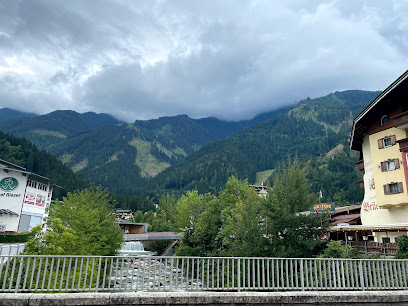
Des-iss
Experience the best of Austrian cuisine at Des-iss Grill, where flavorful grilled dishes meet stunning alpine views in Zillertal.
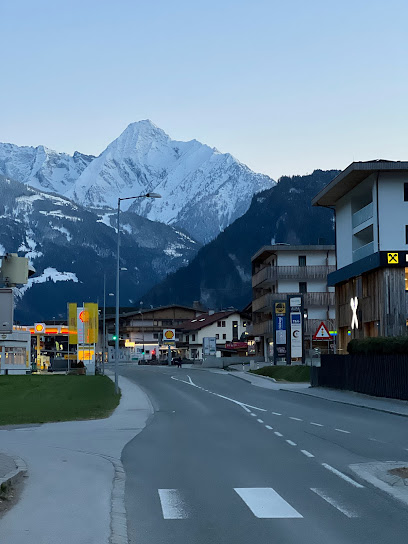
Bawa | Music, Sports & Entertainment
Discover Bawa: The ultimate entertainment venue in Fügen, offering bowling, darts, and a vibrant sports bar atmosphere for unforgettable moments.
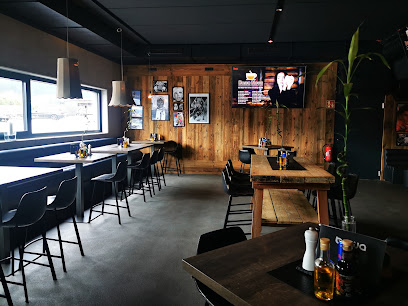
Mo's Restaurant Bar und Live Music, Appartements
Discover Mo's Restaurant Bar und Live Music in Mayrhofen for a perfect blend of delicious food, refreshing drinks, and lively entertainment.
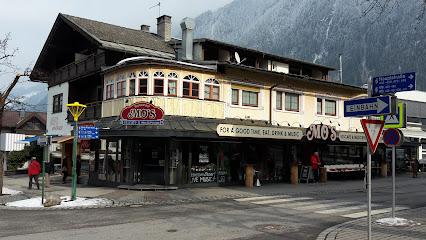
Hohenhaus Tenne Hintertux, Zillertal/Tirol
Experience the vibrant atmosphere of Hohenhaus Tenne in Hintertux, where delicious cuisine meets lively après-ski entertainment in the heart of the Alps.
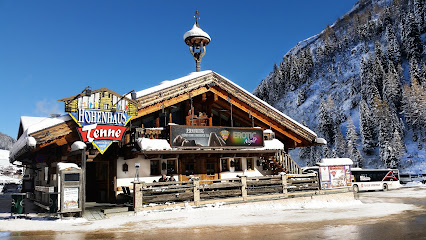
Simon’s Berg- & Skistadl · Zillertal Arena
Discover Simon’s Berg- & Skistadl, a charming mountain cabin in Zillertal Arena, perfect for delicious meals and breathtaking views.
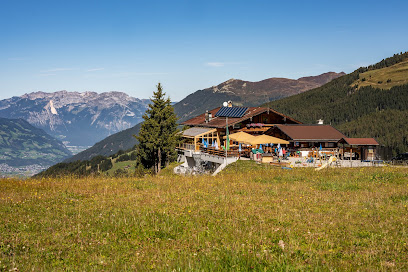
Cin-Cin Gerlos
Experience the lively ambiance of Cin-Cin Gerlos, a must-visit bar in the heart of the Austrian Alps, perfect for après-ski relaxation.
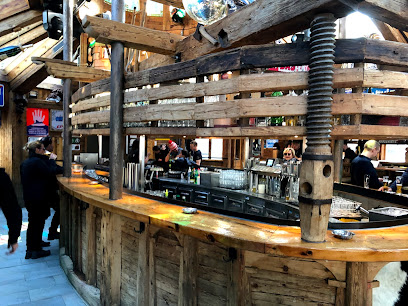
Stoaner's Bienenhäusl
Discover the cozy charm of Stoaner's Bienenhäusl in Mayrhofen, where delightful drinks and warm hospitality await every visitor.
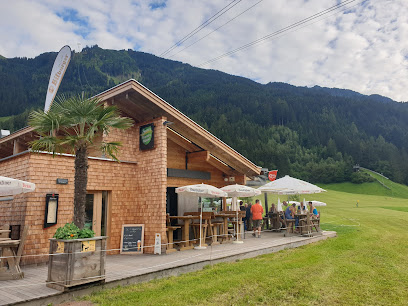
Hotel Englhof
Discover Hotel Englhof in Zell am Ziller: A perfect blend of cozy accommodation, exquisite dining, and stunning Alpine views.
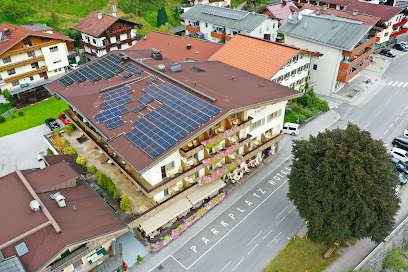
White Lounge
Experience the charm of White Lounge in Mayrhofen, where relaxation meets vibrant alpine culture amidst stunning mountain views.
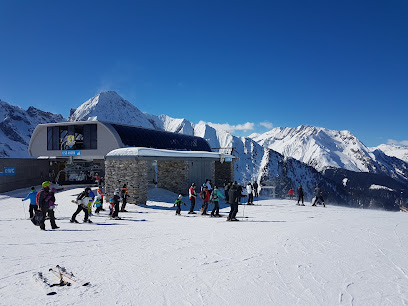
Yeti - Bar
Experience the vibrant après ski scene at Yeti - Bar in Schwendau, where great drinks and live entertainment await you after a day on the slopes.
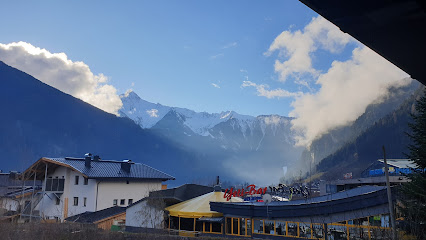
Ice Bar
Experience the magical Ice Bar in Mayrhofen, where frosty cocktails and enchanting decor create the perfect après-ski retreat.
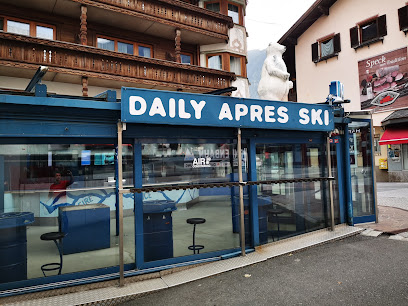
Bar & Disco Kleine Tenne Tux-Lanersbach, Zillertal/Tirol
Dive into the vibrant nightlife of Tux-Lanersbach at Bar & Disco Kleine Tenne, where unforgettable nights and lively entertainment await.
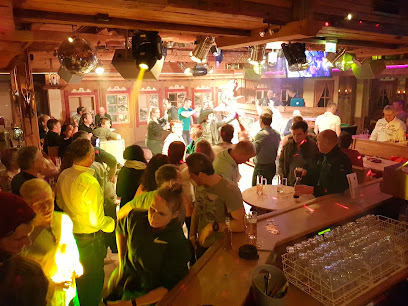
KOSIS Fun Food Bar
Experience the vibrant atmosphere and delicious international cuisine at KOSIS Fun Food Bar in Fügen, Austria.
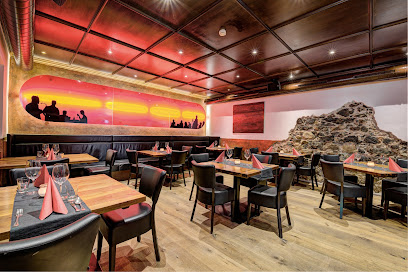
Local Phrases about Zillertal Alps
-
- HelloServus
[Ser-voos] - GoodbyePfiat di
[Fee-at dee] - YesJa
[Ya] - NoNed
[Ned] - Please/You're welcomeBitte
[Bit-te] - Thank youDanke
[Dank-eh] - Excuse me/SorryEntschuldigung
[Ent-shool-di-goong] - How are you?Wie geht's?
[Vee gates] - Fine. And you?Gut. Und dir?
[Goot. Oond deer] - Do you speak English?Sprichst du Englisch?
[Shprikhst doo Eng-lish] - I don't understandI versteh ned
[Ee fer-shtay ned]
- HelloServus
-
- I'd like to see the menu, pleaseI hätt gern die Speisekarte, bitte
[Ee hat gern dee Spai-zeh-kar-teh, bit-teh] - I don't eat meatI ess koan Fleisch
[Ee ess kohn Fly-sh] - Cheers!Prost!
[Prost] - I would like to pay, pleaseI möcht bitte zahlen
[Ee merkht bit-teh tsah-len]
- I'd like to see the menu, pleaseI hätt gern die Speisekarte, bitte
-
- Help!Hilfe!
[Hil-feh] - Go away!Geh weg!
[Gay vehg] - Call the Police!Ruf die Polizei!
[Roof dee Po-lee-tsy] - Call a doctor!Ruf a Doktor!
[Roof ah Dock-tor] - I'm lostI hob mi verirrt
[Ee hob mee veh-reert] - I'm illI bin krank
[Ee been krank]
- Help!Hilfe!
-
- I'd like to buy...I hätt gern...
[Ee hat gern...] - I'm just lookingI schau nur
[Ee shou noor] - How much is it?Wia viel kostet des?
[Vee-ah feel kos-tet dess] - That's too expensiveDes is zu teier
[Dess is tsoo tie-er] - Can you lower the price?Kannst den Preis reduzieren?
[Kannst den Preis ree-doo-tsi-ren]
- I'd like to buy...I hätt gern...
-
- What time is it?Wos is de Zeit?
[Vos is deh tsait] - It's one o'clockEs ist eam
[Ess ist aim] - Half past (10)Halb elf
[Halb elf] - MorningMorgn
[Morgn] - AfternoonNochmittog
[Nokh-mit-tog] - EveningObnd
[Oabnd] - YesterdayGestern
[Ges-tern] - TodayHeit
[Hite] - TomorrowMorgn
[Morgn] - 1eins
[ine-s] - 2zwei
[tss-vai] - 3drei
[dry] - 4vier
[feer] - 5fünf
[foonts] - 6sechs
[zex] - 7sieben
[zee-ben] - 8acht
[akht] - 9neun
[noyn] - 10zehn
[tsain]
- What time is it?Wos is de Zeit?
-
- Where's a/the...?Wo isch de/das...?
[Vo ish deh/dass] - What's the address?Was isch die Adresse?
[Vas ish dee Ah-dres-seh] - Can you show me (on the map)?Kannsch ma des (auf der Karte) zeigen?
[Kannsh mah dess (ouf der Kar-teh) tsee-gen] - When's the next (bus)?Wann fährt der nächste (Bus)?
[Vann fairt der nekh-steh (Boos)] - A ticket (to ....)A Fahrkartn (nach ....)
[Ah Fair-kartn (nakh ....)]
- Where's a/the...?Wo isch de/das...?
History of Zillertal Alps
-
The Zillertal Alps have been home to human settlements since prehistoric times. Archaeological findings, such as tools and artifacts, indicate that early human communities thrived in this mountainous region thousands of years ago. These early inhabitants were likely hunters and gatherers who utilized the diverse resources of the alpine environment.
-
During the Middle Ages, the Zillertal Alps became a significant center for mining. The region's rich deposits of silver and copper attracted miners and settlers. The town of Schwaz, located near the Zillertal, was known as the 'Mother of All Mines' and played a crucial role in the European mining industry. The wealth generated from mining contributed to the development of local infrastructure and trade.
-
The Zillertal region has a deep-rooted religious history, with numerous churches, chapels, and monasteries dotting the landscape. One notable site is the pilgrimage church of Maria Brettfall, which dates back to the 17th century. This church has been a significant religious and cultural landmark for centuries, attracting pilgrims and visitors from far and wide.
-
The Zillertal Alps were not immune to the sweeping changes brought about by the Napoleonic Wars in the early 19th century. The Tyrolean Rebellion of 1809 saw local resistance fighters, led by Andreas Hofer, rise against French and Bavarian forces. The rugged terrain of the Zillertal provided a strategic advantage for the Tyrolean insurgents, who fought fiercely to defend their homeland.
-
The late 19th and early 20th centuries marked the beginning of tourism in the Zillertal Alps. The construction of the Zillertal Railway in 1902 made the region more accessible to visitors. Skiing and mountaineering became popular activities, attracting adventurers and nature enthusiasts. The establishment of mountain huts, such as the Berliner Hütte, provided shelter and amenities for explorers, further boosting tourism.
-
The Zillertal Alps, like much of Austria, experienced the turmoil of World War II. The region saw the movement of troops and the impact of wartime activities. After the war, the Zillertal underwent a period of reconstruction and modernization. The development of ski resorts and infrastructure in the post-war era transformed the area into a premier winter sports destination.
-
The Zillertal Alps are rich in cultural traditions that have been preserved and celebrated by the local communities. Traditional Tyrolean music, dance, and attire are integral parts of the region's heritage. Events such as the Gauder Fest, one of Austria's oldest folk festivals, showcase the vibrant customs and folklore of the Zillertal. Visitors can experience authentic Tyrolean hospitality and immerse themselves in the local way of life.
-
In recent decades, there has been a growing emphasis on preserving the natural beauty and ecological integrity of the Zillertal Alps. The establishment of the Zillertal Alps Nature Park in 1991 reflects this commitment to conservation. The park aims to protect the region's diverse flora and fauna while promoting sustainable tourism practices. Efforts to balance human activity with environmental stewardship ensure that the Zillertal Alps remain a pristine and cherished destination for future generations.
Zillertal Alps Essentials
-
The Zillertal Alps are located in Tyrol, Austria. The nearest major airport is Innsbruck Airport, approximately 65 kilometers away. From Innsbruck, you can take a train to the Zillertal Valley, with regular services to Mayrhofen, the heart of the region. Alternatively, Munich Airport is about 190 kilometers away, and you can reach the Zillertal Alps by car, train, or bus from there.
-
Within the Zillertal Valley, the Zillertalbahn narrow-gauge railway is a convenient and scenic way to travel between towns. Public buses are available and connect to ski resorts and hiking trails. Renting a car offers flexibility, but be mindful of mountainous roads which can be challenging in winter. Biking is also popular in the warmer months, with numerous trails available.
-
The official currency in Austria is the Euro (EUR). Credit and debit cards are widely accepted in hotels, restaurants, and shops. However, it's advisable to carry some cash, especially for smaller establishments and rural areas. ATMs are readily available throughout the Zillertal Valley.
-
The Zillertal Alps are generally very safe for tourists. Standard precautions include not leaving valuables unattended and being cautious in crowded places. There are no specific high-crime areas targeting tourists. However, always check weather conditions before heading out for hiking or skiing, as alpine weather can be unpredictable.
-
In case of emergency, dial 112 for immediate assistance. The region has well-equipped medical facilities and rescue services. It is advisable to have travel insurance that covers medical emergencies, including mountain rescue. Pharmacies are available in larger towns, and many speak English.
-
Fashion: Do wear appropriate clothing for alpine weather, including layers and waterproof gear. Don't wear high heels or unsuitable footwear for hiking. Religion: Do respect local religious customs, especially when visiting churches. Public Transport: Do validate your tickets before boarding trains and buses. Don't be loud or disruptive. Greetings: Do greet with a friendly 'Grüß Gott' or 'Hallo'. Don't forget to say 'Danke' (thank you). Eating & Drinking: Do try local dishes like Kaiserschmarrn and Tyrolean bacon. Don't leave a large tip; rounding up the bill is customary.
-
To experience the Zillertal Alps like a local, visit during the Almabtrieb festival in autumn when cows are brought down from the mountain pastures. Enjoy a traditional Tyrolean evening with local music and dance. For a unique experience, take the Hintertux Glacier cable car for year-round skiing and stunning views. Don't miss visiting local farms where you can buy fresh dairy products.
Nearby Cities to Zillertal Alps
-
Things To Do in Kitzbühel
-
Things To Do in Zell am See
-
Things To Do in Bad Gastein
-
Things To Do in Salzburg
-
Things To Do in St. Anton am Arlberg
-
Things To Do in Munich
-
Things To Do in Hallstatt
-
Things To Do in Kranjska Gora
-
Things To Do in Davos
-
Things To Do in St. Moritz
-
Things To Do in Dornbirn
-
Things To Do in Arosa
-
Things To Do in Bregenz
-
Things To Do in Bohinj
-
Things To Do in Venice













